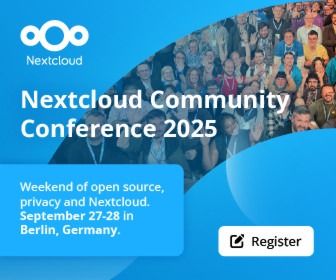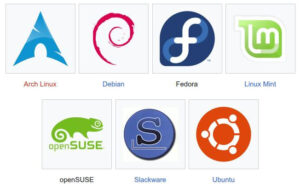Now that Microsoft has been pretty much neutralized as a threat, who’s next on the list to be free tech’s “public enemy number one?”
Oracle? While it’s true that the company is more thuggish than Redmond ever dreamed of being, Oracle has never really been a threat to anyone but the database and high finance crowds. Also, the company’s recent financials indicate the company, like Microsoft, isn’t what it used to be.
 Apple? So long as it continues to be an overpriced walled garden, it’s not likely to pose much of a threat. It’ll always be held in disdain by free tech folks, but always in the number two position because it’s easily ignored.
Apple? So long as it continues to be an overpriced walled garden, it’s not likely to pose much of a threat. It’ll always be held in disdain by free tech folks, but always in the number two position because it’s easily ignored.
My guess is that the company poised to win the most-hated-in-free-tech prize is Google.
Yeah, Google. The company that’s popularized two Linux distributions — or at least, two operating systems using the Linux kernel. The company that’s given consumers free use of Docs and Drive, and which owns and operates the servers where tens of millions of people store their photos and music — and for free unless they like music too much and need extra storage. Google, which through its browser gave Linux users the gift of Netflix — something of a trojan gift, to be sure, but a valuable gift just the same.
Free search, free Android, the free Chrome browser and free Chrome OS.
The trouble is that none of it’s free. We just don’t pay for it with cash.
Android and Chrome OS are open source, but locked into Google’s cloud services with the tightness of proprietary software. Their combined installed bases have turned free users into sizable market shares, both for Google’s core advertising business and it’s burgeoning cloud services.
The company currently controls the smart phone market in a way that would’ve done the Microsoft of old proud, and it’s cloud services are already pretty much essential to many consumers and businesses — and that’s only going to grow as cloud-based Chrome OS takes increasingly larger slices of the PC market pie, which it’s poised to do.
Chromebooks, of course, dominated the sales of laptops last Christmas, a trend that’s sure to continue as the devices have caught on in education in a way not seen since the days when Apple owned the academic market. And we’re now starting to see Chrome getting a big push on the desktop, in the all-in-one (AIO) desktop market, with Forbes reporting on Friday on Acer’s release of two AIOs under the name “Acer Chromebase.”
“The Google Chromebase comes in two varieties, one with a 10-point 21.5-inch touchscreen priced at $429 and one with a standard display of the same size that will carry a $329 price tag. Both will hit retailers this month. Acer also sees these units being used in a variety of business applications, particularly where space is at a premium.
“The AIOs were originally introduced on April 1, but this is the first time they will be available to U.S. customers.”
There’s little doubt that we’re going to see many more desktop Chrome machines, and by this time next year we’ll probably be reading stories about Chrome’s amazing rise on desktops as well as laptops. When that happens, when Google’s market share on the desktop rises to, say, ten percent, then we’ll know that the Microsoft era has finally ended.
Welcome to the age of Google: brought to you by a company that does amazing good on one hand, and which is a self serving monopolist on the other. A company that most of us kind of like, but with very deep reservations.
Google isn’t Microsoft and never will be, the difference being that Google truly tries to do the right thing and follow it’s self given mandate to “not do evil.” The trouble is, it rationalizes — which probably can’t be helped. At heart, Google is an advertising company, and advertising people are infamous for believing their own sales pitches.
Mixed in with all of the questionable things Google does are the things it does right, like its Summer of Code, its fight for Net Neutrality, its awesome support of FOSS projects, and Google Fiber’s bringing of high speed Internet to the masses. And Google will never have the type of market share on PCs that Microsoft once enjoyed, because desktop Linux is also poised to take a larger slice of the pie in this age when consumers are no longer afraid to try something other than Windows.
But as Google’s fortunes on the PC rise, it’s inevitable that we’ll see more anti-Google sentiment coming from the free tech crowd. While much of that sentiment will be deserved, much of it will be simply because we love to hate the big shots.
Help keep FOSS Force strong. If you like this article, become a subscriber.
Christine Hall has been a journalist since 1971. In 2001, she began writing a weekly consumer computer column and started covering Linux and FOSS in 2002 after making the switch to GNU/Linux. Follow her on Twitter: @BrideOfLinux










There will always be a #1. It”s Googles turn now
One nitpick: Neither Android nor Chrome are open source. Android is based upon the open source AOSP project, but with proprietary addiitions, including but not limited to all of Google’s services. Similarly, Chrome is built upon the open source Chromium with extra proprietary bits added. Even the open source CHromium isn’t free from controversy (just ask Debian), since it was recently caught silently downloading and executing a proprietary extension without user consent.
It is a mistake trying to assign human-like motivations to any publicly traded corporation like Microsoft or Google. They are entities designed to make money, pure and simple and all other concerns are secondary at best. You may think of Google as “less evil” than Microsoft, but neither company really has your well-being in mind. I don’t hate any of them, but I don’t trust any of them either, and neither should anyone else.
That said: While Google does release a lot of FOSS softare, they use it as a tool to advance a decidedly non-free agenda.
Google’s “fight” for “Net Neutrality” was just as self-serving as anything else, since it helped further enshrine them as a big player to the detriment of upstarts.
…which is not to say that companies shouldn’t try to look out for their own interests, but by engaging the government to do their dirty work for them, they’re like every. single. other. company. that’s in a leading position.
> Google’s “fight” for “Net Neutrality” was just as self-serving as anything else, since it helped further enshrine them as a big player to the detriment of upstarts.
I don’t care about Google’s motives, as with any company, their motives are money driven.
I do feel some form of net neutrality is REQUIRED to bring some freedom back to the net. The current situation, where everyone is at the mercy of monopolistic huge media conglomerate based ISP’s must not be allowed to stand. The internet actually did all right when most users accessed it through the Title II controlled phone system. ISP competition was widespread and prices fell constantly. The current system is stupid.
You can only run so many wires to a house. Cable companies should be forced by local governments to lease their lines to competitors at a reasonable rate (aka a utility), or cease business.
I don’t feel like getting too into this right now, but suffice to say, you’ve got the causation arrow pointing the wrong direction here.
Also, there is absolutely nothing wrong with being motivated by money as a company. In fact, it is a moral duty to be most concerned with making sure your company continues to exist, which requires making a profit. The alternative is not existing, which puts people out of jobs, among other things.
> “Also, there is absolutely nothing wrong with being motivated by money as a company. In fact, it is a moral duty to be most concerned with making sure your company continues to exist, which requires making a profit.”
There is a problem when money is the only motivation, which is pretty much the case with any publicly traded company. A company’s continued existence is not necessarily what is best for everyone else. There is no “moral duty” involved – companies are completely amoral.
Jobs can be replaced and are not an end that justifies the means. All the better they are replaced by jobs in a company that respects the quality of the society they exist to benefit.
If an otherwise normal company ceases to exist because it did not deliver profits such that it could continue, one can say that it failed its stockholders and employees at the very least.
Money (as in profit) as the only motivation is actually the only thing a company SHOULD be concerned with. Unfortunately, most companies concern themselves with rent-seeking which is great for stability, but terrible for literally everyone else. On the other hand, that rent-seeking is encouraged because regulators hold the power to make or break companies.
THAT is an inherently immoral structure and set of incentives. What I cannot for the life of me understand is why people agitate for MORE of this power to be concentrated in the hands of bureaucrats and politicians.
> “Money (as in profit) as the only motivation is actually the only thing a company SHOULD be concerned with.”
No, they should first be concerned with providing something of value to society and only secondly with making enough money to continue to exist. Absent the first concern, they are merely a drain on resources.
I’m not inherently in favor of increasing federal government regulation. If anything I’d like to see it handled on a local level, where municipalities or other local bodies oversee the construction of lines, or at the least exert control over companies that build them, to prevent abuse. Communications lines are merely plumbing and should be handled as such. For comparison: How many competing power companies run lines to your house? Five? Ten? Or just one? Where I live, like most people, we have just one. But we have a choice of power providers with competitive prices thanks to regulation of those lines. It’s exactly the same thing.
Google also owns Boston Dynamics, that nerd nest that spawns terminator-style robots for DARPA. Think about that!
A company that provides something of value will make money, so long as they stick to providing that something of value and do not concern themselves with ancillary rubbish.
This is not a difficult concept.
Also, the REASON there’s one set of power lines is because of government-granted monopoly, which, until utility DE-regulation gave us terrible service and higher than market prices. This was especially acute with the government-granted super-monopoly of Ma Bell in telephony. The monster that created Ma Bell then thought it would be best to TIGHTEN regulations AND forcibly break up the company into regional and local monopolies, which had the same incentives.
I’ve got no problem with a leasing arrangement (I mean, that’s how I’ve switched gas suppliers approximately 5 times in 10 years using the same pipes), but the government caused the problem in the first place and refuses to cede power, which would change incentives to something more reasonable.
> “the REASON there’s one set of power lines is because of government-granted monopoly”
No, the reason there is one set of power lines is that it is crazy stupid and inefficient to run more then one. Who wants 10 competing power providers running separate lines everywhere? I’ll bet it’d be fun when a car knocks down a utility pole in that neighborhood and live lines are everywhere. You want to live in there? I sure don’t.
One set of power lines, one set of water lines, one set of sewage lines, and one set of data lines. It’s the only arrangement that makes any sense. Once you accept that, the realization that competition can only come from shared usage of lines is obvious and unavoidable.
Did you gloss over the part where I said a leasing arrangement is good and that it is exactly why I’ve been able to switch gas suppliers (and I get constant solicitations to switch electricity suppliers as well). THAT MAKES SENSE. But the initial reason is because of government-granted monopoly of the right-of-way to lay infrastructure. Along with that ORIGINALLY went government-granted monopoly for provision of services.
Now, that is less the case in many places and a partially sensible lease arrangement rules. The problem is the government grant of monopoly and the continued enforcement of same. Wherever the government treads and slaps its mandates on market actors, it distorts the market and entrenches the players who are best at absorbing the costs of compliance (and sometimes outright graft). That is bad for everyone.
Yes.
According to Thiagio Macieira (who is sort of kind of the Tizen community liaison or something), In order to license Android for phones, Samsung had to sign an agreement to NOT install other OSs on those phones. This is why Tizen will never be available on a Samsung flagship device.
To me, this stinks of Microsoft’s anti-competitive practice of denying licenses to manufacturers who might dare to install an OS other than Windows.
reference: https://lists.tizen.org/pipermail/general/2015-June/003501.html
I for one don’t like Google, they’re too much in a rush to get all your data / movies / music onto their “free” cloud-based storage. here’s a question for you, what happens if their server goes down? Unless you have an up-to-date backup, then you’re pretty much screwed right? And I know a lot of people will claim that Google has backups of it’s backups etc…but a downed server is just one scenario, what about loss of power for 6 city blocks? Or some form of interruption to the line? I don’t like Google because they are trying too hard to get your data on their stuff. In regards to their free stuff and how entangled those free items are within thew Google infrastructure, I feel that unless they do something REALLY aggressive, something that takes away my freedoms to use whatever OS I choose, then they can exist. I’m not interested in their motivation whatsoever, who wants to work for free? but if in the process of working you hamper others or try to control everything then you become the enemy….and that’s just how I see things…
I get link bait but you got so giddy having figured out a title to reel in the fish that u forgot to write something other than a few random thoughts put together.
D+.
Please, please, please, learn how to spell “its”.
A misspelled one messes up with the parsing of the entire sentence. It’s SO fucking annoying!
Google is a lot worse than Microsoft. And is has become like that since Page took over as CEO.
On some Android tablets their data-collection obsession has become quite extreme, to the point of “You don’t give me your personal info, you don’t get to use the tablet!”. You can’t use the browser, and you get a pop-up every second to “Enter you Google credentials”.
lolwut?
google the next M$?
thats a statement made with very little facts…
why they want your data on cloud? – to advertise, and sell this info (do no evil huh? i wonder who phrased the term for google), nsa has direct access to google cos its been reported many a times of google revealing sensitve data…..
they are money driven to say the very least of them….
maybe they were following the principles but recently they behave as the bigshots above everyone holding on to the very principle but rationalizing and modifying them as and when required…..
havent we seen corporates do all that before?
all in all just bricks in the wall…
the same bricks but better fitted because they have the principle of open source behind them and showing themselves as open source supporters and implementers….
have experienced cookies stored on chrome browser even for days…
again chrome is a rip off from chromium…
they are just getting into every possible market out there and says we worked for you guys…see open source is great and so are the folks behind it….
another brick in the wall?
final note: google already a bigger evil than m$….
@jezra
The details of what you are talking about are a bit different than that.
What Samsung licenses is not Android (Android itself is Free Software). What they license is the right to pre-install Google Play and related services (including some applications) on their devices.
Also, what they agree to avoid in order to maintain that license is not installing other operating systems, but rather installing non-standard versions of Android. That is, any Android based operating systems that they install must meet certain criteria and be compatible with Google Play. Tizen is not affected by this because it is not based on Android. If it were, Samsung could not release any Tizen devices, and they have released some.
Having lived through Micro$oft at the peak of it’s power, I’ll take Google any day. Thanks for wasting my time.
a big thank you to foss and google for evolving computing. we got search, maps, cloud, open web. freedom. would microsoft or apple have provided that? so thanks to microsoft for missing that boat – otherwise we’d be wearing even more of their chains.
No, Google are far worse. I simply can not stand them. They make me vomit. I have to use their services only because my clients do. I do occasionally use Youtube, however, I try to limit my use of their technologies as far as practical.
Google is much worse than Microsoft
For me is #2 most hated after nvidia
Continuous nagging to login on android so the cann assig all the data gathering
They dont’t care about anyone’s privacy
Did you folks ever say anything negative about MS monopoly during the last 25 years it has been ruling us?
Is it just that no else corporation should be allowed. Is it just too complicated to have a choice or why is monopoly problem now when actually Google is bringing an other player (competitor) on field?
Thanks Mike and Nitecrawler for insightful comments.
Younger people indeed seem to have forgotten (or never new) about the ways of Microsoft. The company is strongly against open standards and opensource software, and has used and still uses a lot of dirty tricks to fight them. This fighting has happened mostly in the background, so many people don’t know anything about it. Despite some problems that come with the advertising business model of Google, the company is a quite nice one compared with Microsoft (or Apple).
Many people have a tendency to go from one extreme to another with there opinions, and when they catch up with the idea that Google isn’t only about doing good, they agitate themselves into thinking that it must be purely bad then. It’s important to be able to see all the shades of gray too–the dark ones and light ones, and not just jump from loving things to hating them.